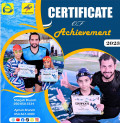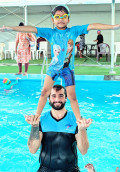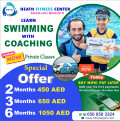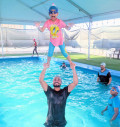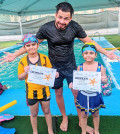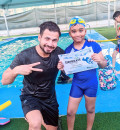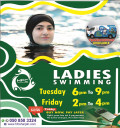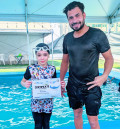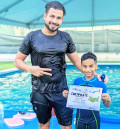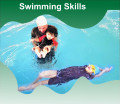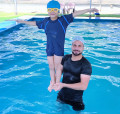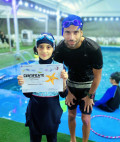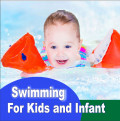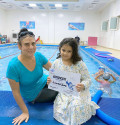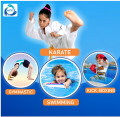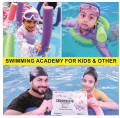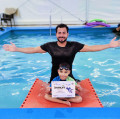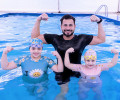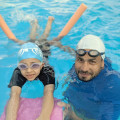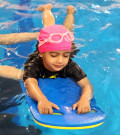
Few activities can match the holistic benefits of swimming
2023-10-06 - karate- Introduction
When it comes to child development, few activities can match the holistic benefits of swimming. Not only is it a fun and engaging pastime, but it also promotes physical health, cognitive development, and emotional well-being. In this article, we will explore the world of child's swimming activities, delving into why it's essential, how to start, and safety precautions that every parent should be aware of.
The Importance of Swimming for Kids
Swimming is often referred to as a life skill, and for a good reason. Teaching your child to swim not only offers them a fantastic way to have fun but also equips them with valuable survival skills. Let's dive into the reasons why swimming is crucial for kids.
Physical Development
Swimming is an excellent way to enhance a child's physical development. It promotes muscle strength, cardiovascular fitness, and overall endurance. The low-impact nature of swimming makes it accessible to children of all fitness levels, allowing them to exercise without putting excessive strain on their growing bodies.
Cognitive Benefits
Engaging in swimming activities can boost a child's cognitive development. The focus required to coordinate various movements in the water helps improve concentration and problem-solving abilities. Moreover, learning essential water safety rules adds an extra layer of cognitive development.
Emotional Well-being
Swimming can also contribute to emotional well-being. The sense of accomplishment a child feels when they master a new swimming technique boosts self-esteem and confidence. Additionally, the calming effect of water can help alleviate stress and anxiety in children.
Getting Started with Child's Swimming Activities
Now that we understand why swimming is essential for kids, let's explore how to get started.
Choose the Right Age
Before introducing your child to swimming, it's crucial to consider their age. While there is no set age for starting swimming lessons, many experts suggest beginning around the age of four. At this age, children have developed enough physical and cognitive abilities to grasp basic swimming concepts.
Select a Suitable Swim Program
Enrolling your child in a reputable swim program is essential. Look for programs that focus on water safety, skill development, and creating a positive swimming experience. Experienced instructors who specialize in teaching kids can make a significant difference in your child's progress.
Familiarization with Water
For very young children, the initial step is to familiarize them with water. This can involve gentle play in a shallow pool, allowing them to get comfortable with the sensation of water on their skin. Always ensure they are wearing proper swim diapers for hygiene.
Gradual Progression
As your child becomes more comfortable in the water, gradually introduce them to basic swimming techniques. Start with activities like floating and kicking, and progress to more advanced strokes as they gain confidence.
Safety Precautions
While swimming is undoubtedly beneficial, safety should always be a top priority when it comes to child's swimming activities.
Supervision
Never leave your child unattended in or near water. Even if they are skilled swimmers, accidents can happen. Always maintain a close watch to ensure their safety.
Learn CPR
Every parent should consider learning CPR. In case of emergencies, knowing how to perform CPR can be a lifesaving skill.
Teach Water Safety
Educate your child about water safety rules. Emphasize the importance of not running near the pool, not diving in shallow water, and always wearing appropriate floatation devices when needed.
Sun Protection
Protect your child from harmful UV rays by applying sunscreen and having them wear protective clothing, such as rash guards and wide-brimmed hats.
Conclusion
In conclusion, child's swimming activities offer a plethora of benefits, including physical development, cognitive enhancement, and emotional well-being. Getting started with swimming involves choosing the right age, enrolling in a suitable swim program, familiarizing your child with water, and gradually progressing their skills. However, safety should always be paramount, with constant supervision, CPR knowledge, water safety education, and sun protection being essential.
.






.jpg)




















